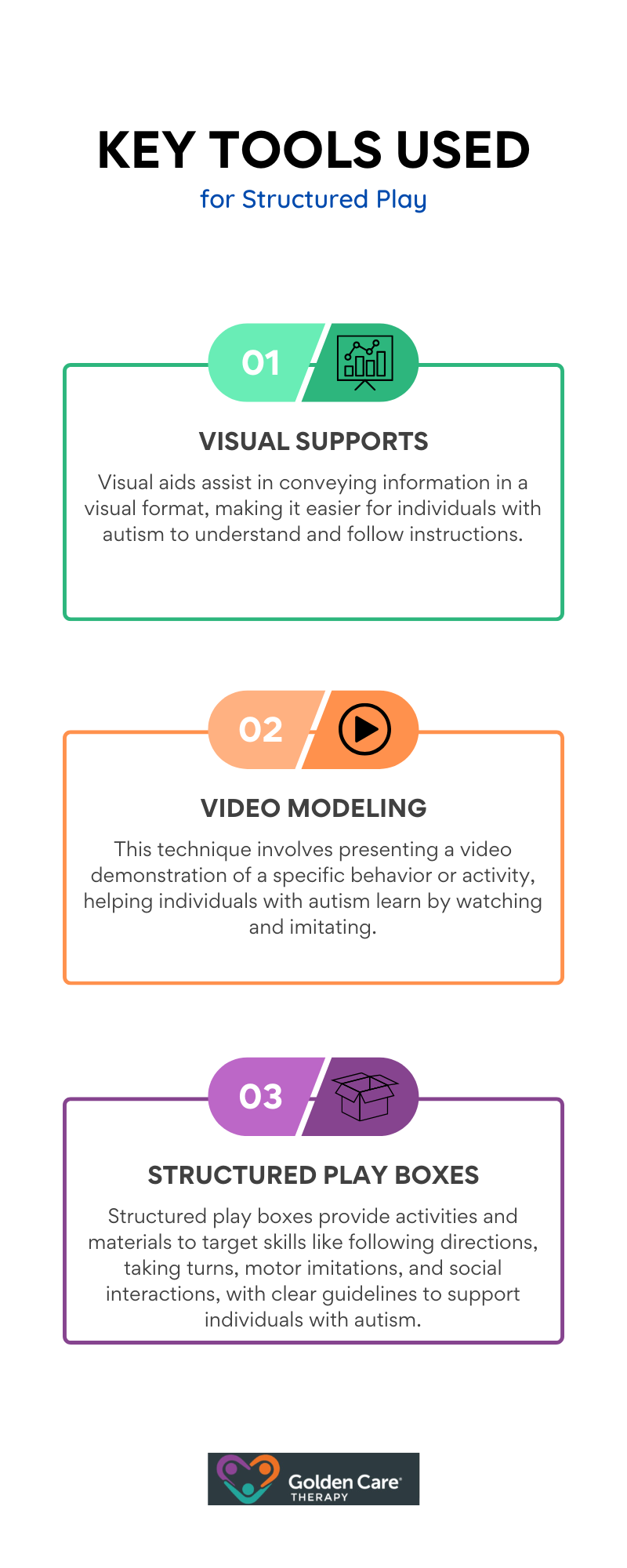Structured play offers a unique and valuable approach for children with autism, creating an environment where they can thrive and engage meaningfully. This type of play involves planned activities that are designed to promote learning and social interaction.
It provides a framework that can help children feel secure and confident as they explore new skills and experiences. By incorporating structured play into daily routines, caregivers and educators can foster essential social skills, improve communication, and enhance emotional development.
Understanding the principles of structured play allows us to unlock the potential for joyful and meaningful interactions, paving the way for a brighter future for children with autism.
Benefits of Structured Play
Structured play activities offer numerous benefits to individuals with autism, aiding in the acquisition of essential play skills. These activities can assist in learning how to share, take turns, view situations from different perspectives, and engage with peers.
Additionally, structured play can contribute to the enhancement of fine and gross motor skills, communication abilities, and social interactions.
Under the umbrella of structured play, adults or caregivers provide resources, initiate activities, or participate in play sessions to offer direction and guidance. By structuring play interactions, autistic individuals are supported in acquiring and practicing fundamental play skills such as sharing, turn-taking, and social engagement.
The structured nature of these activities helps reduce overwhelming choices during play, creating a more manageable environment for learning and interaction.
Structured play activities establish clear expectations, guidelines, and endpoints for individuals with autism. This predictability fosters a sense of security and comfort, reducing anxiety levels and facilitating engagement in play and social situations.
Over time, with consistent practice, individuals may gain the confidence to independently initiate and complete play-related tasks, fostering greater independence and social competence.
How to Implement Structured Play
Implementing structured play involves providing clear guidelines and directions to support individuals with autism in developing various play skills, such as sharing, taking turns, and interacting with others.
Structured play activities can assist in the development of fine and gross motor skills as well as communication skills. By offering structured play sessions, caregivers and educators can create predictability and reduce anxiety levels, resulting in a more comfortable and engaging play experience for individuals with autism.
To effectively implement structured play, consider the following strategies:
- Providing clear instructions and expectations for each activity.
- Breaking down play activities into manageable steps.
- Using visual supports, such as visual schedules and one-step visuals, to enhance understanding.
- Incorporating video modeling to demonstrate the sequential steps of play activities.
Moreover, using the right tools is crucial when facilitating structured play for individuals with autism. These tools can help create a structured and supportive environment that promotes learning and social interaction. Visual supports, video modeling, and structured play boxes are effective tools that can enhance the structured play experience for individuals with autism.
Key tools for structured play include:

Incorporating these tools and strategies helps caregivers and educators create an enriching and structured play environment that promotes learning, social interaction, and skill development for individuals with autism.
How to Enhance Structured Play Activities
One effective way to enhance structured play activities for individuals with autism is by gradually increasing the duration of play. As children learn to complete structured play activities on their own, they can expand the time spent engaged in play.
This gradual extension helps in building attention span, fostering patience, and improving focus during play sessions. By incrementally lengthening the duration of structured play activities, individuals with autism can develop stamina for sustained engagement, leading to improved skill acquisition and better participation in play-based learning experiences.
It is essential to monitor the individual’s response to extended play durations and adjust them accordingly to ensure a positive and rewarding play experience.
Another crucial aspect of enhancing structured play activities for individuals with autism is customizing the activities to align with their special interests. Introducing play activities that resonate with the individual’s preferences and passions can significantly enhance their motivation, engagement, and overall enjoyment during playtime.
As long as activities are tailored to cater to the individual’s interests, it not only increases their participation but also promotes a sense of autonomy and empowerment. By incorporating elements that capture the individual’s attention and stimulate their curiosity, structured play activities become more meaningful and engaging for individuals with autism.
Using resources such as ”Autism and Play – How to Support Children” and ”Play and Autistic Children” can offer valuable guidance on successfully engaging individuals with autism in structured play activities.
These resources provide play ideas and strategies to create a supportive and enriching play environment that fosters growth and development.
Structured Play for Learning
Structured play activities have shown significant benefits for individuals with autism, particularly when incorporated into learning environments.
Understanding the applications of structured play in learning, especially within the context of virtual learning, and how to effectively organize and utilize play boxes is essential for maximizing the developmental potential of individuals with autism.
With the shift towards virtual learning, structured play has become a valuable tool for engaging individuals with autism in remote educational settings. Structured play activities, when adapted for virtual platforms, provide interactive and sensory-rich experiences that promote learning and skill development.
Utilizing structured play boxes during virtual learning sessions has proven to be highly effective. These boxes contain a variety of materials and activities tailored to the individual’s needs and interests, allowing for engaging playtime even through video calls.
To make the most of structured play boxes in a virtual learning context, proper organization and utilization are essential. When organizing play boxes, categorize materials based on their intended use and learning goals.
Ensure that each activity aligns with the individual’s developmental needs and interests to optimize engagement and learning outcomes.
During virtual learning sessions, guide the individual through the contents of the play box, explaining each activity and providing support as needed. Encourage active participation and exploration, fostering independence and creativity. Allow the individual to choose activities based on their preferences, promoting autonomy and self-directed learning.
Final Thoughts
Structured play is a valuable tool for helping children with autism develop important skills while having fun. By creating a predictable and engaging environment, we can encourage social interaction, improve communication, and boost creativity.
Understanding how to implement structured play not only enriches the lives of autistic children but also strengthens their bonds with their families and peers.
With patience and practice, structured play can unlock new possibilities for growth and joy, making every playtime a chance for learning and connection. At Golden Care Therapy, we pride ourselves on delivering high-quality ABA therapy in Georgia that is tailored to meet the unique needs of each child.
Our dedicated team is committed to creating an engaging and supportive environment where your child can thrive. If you’re interested in exploring how our services can benefit your family, contact us today to learn more about our programs!

